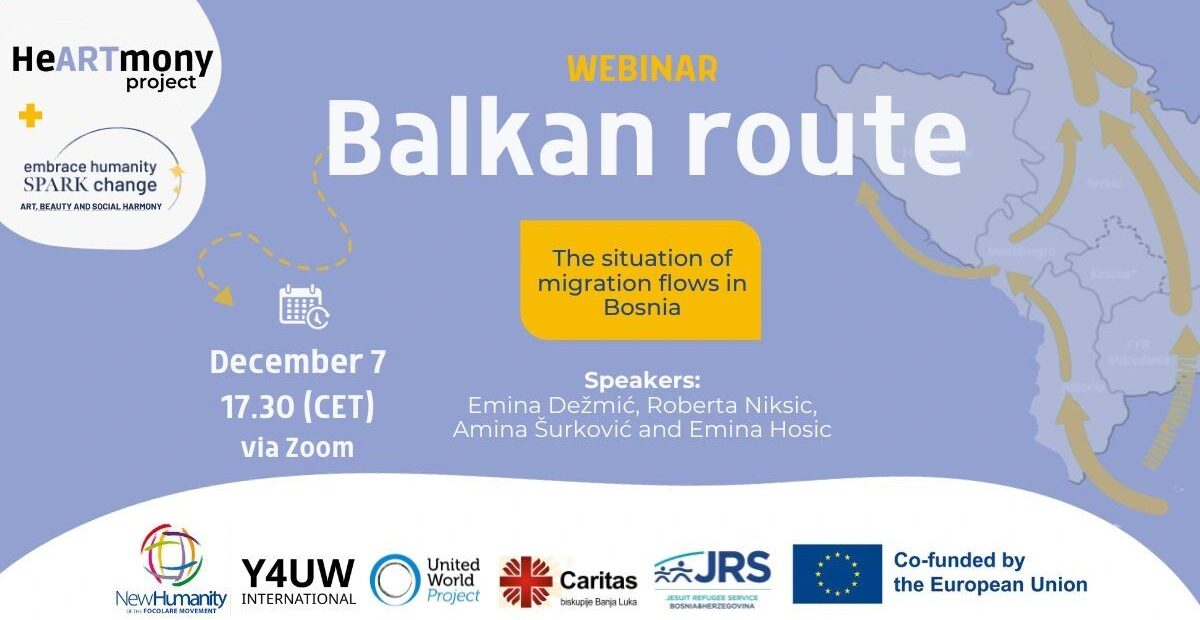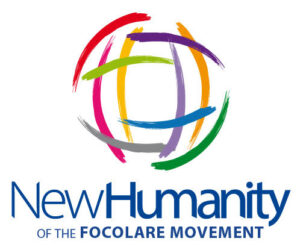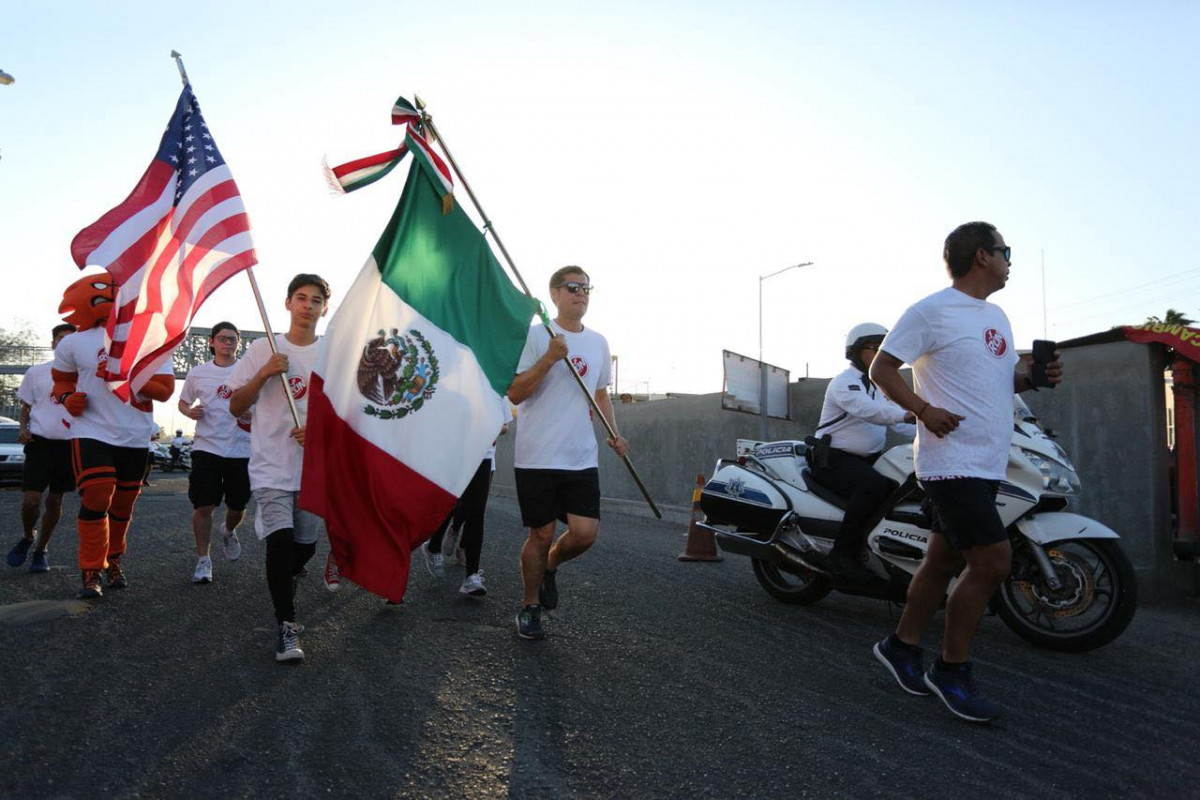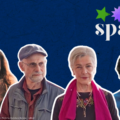
Workshop
Understanding migration: stories from the Balkans route

By Ana Clara Giovani
Last December 7th, the webinar “Balkan route: the situation of migration flows in Bosnia” gathered people from diverse organizations to immerse themselves in a profound exploration of migration challenges. This collaborative initiative brought together participants eager to deepen their knowledge and understanding of the intricate challenges faced by migrants along the Balkans route, specifically in Bosnia. The event is part of the HeARTmony project, co-funded by the European Union and aligned with the “Embrace Humanity, Spark Change” 2023-2024 campaign from United World Project.
Embrace Humanity
The webinar featured a lineup of insightful speakers, each contributing a unique perspective to the narrative. Emina Hosic, representing Jesuits Refugee Services (JRS), commenced the dialogue by showcasing the impactful work of JRS in accompanying, serving, and advocating for forcibly displaced people. The organization’s efforts spanned reconciliation, education, livelihoods, advocacy, and crucial mental health and psychological support.
Following this, Vedran Mihic from JRS, alongside Emina Dežmić from Caritas, delved into the situation of migration flows in Bosnia. The audience gained a comprehensive understanding of the challenges faced by individuals seeking asylum from countries such as Turkey, Syria, Russia, and Afghanistan. The speakers highlighted the often-overlooked reality in Bosnia, where migrants face strict criteria, capacity constraints, and pushback practices.
Amina Surkovic then spotlighted the criminalization of migrants, unveiling her research on the construction of fear and the portrayal of migrants as the “criminal other.” Migrants are often unjustly portrayed as criminals, constructing a narrative that dehumanizes their figures and fuels prejudiced attitudes. Her compelling analysis exposed the tactics employed in constructing narratives, including false claims, biased reporting, manipulation of facts, disinformation, and sensationalism. By unpacking the intricacies of media influence, she underscored the urgent need to counteract these narratives, demonstrating that fear of the other can easily transform into blame-shifting and political instrumentalization.
Spark Change
As the webinar unfolded, Roberta Niksic, a participant in the HeARTmony project, shared the heartening results. The musical group Gen Rosso conducted workshops and a concert in Bosnia, fostering connections and friendships between locals and migrants. Through song and dance, workshops became spaces for dialogue, breaking down prejudices, and creating a sense of community.
The concluding segment of the webinar featured a dynamic Q&A session, allowing participants to engage in a meaningful dialogue with the speakers and delve deeper into the complexities of migration in the Balkans.
In a world often divided by borders, this webinar serves as a beacon of unity, encouraging individuals to join hands in addressing the challenges of migration and working towards a more inclusive and harmonious society. Mark your calendars for the next webinar, January 24th, and be part of the conversation about migration flows in Italy – because understanding the human stories behind migration is the first step towards positive change.
Missed something? Here’s a quick index of our webinar, so you can watch anytime!
14:14 – What is the HeARTmony project?
23:56 – Jesuits Refugee Services (JRS) in action
45:46 – The situation of migration flows in Bosnia
1:15:38 – Research on the criminalization of migrants
1:34:05 – Art and dialogue: the experience of HeARTmony project by its participants
Source:







